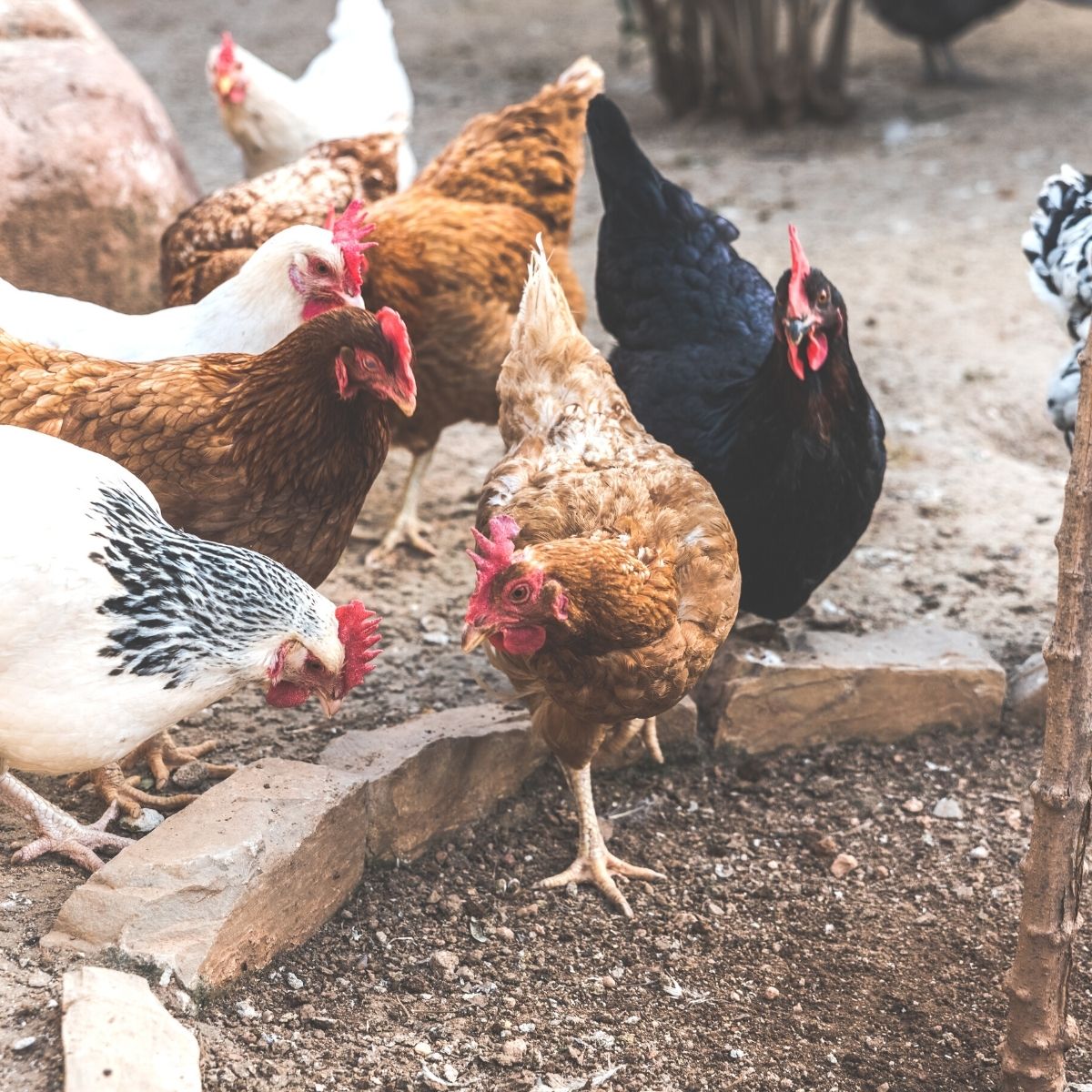Can chickens lay two eggs a day? That’s a question that has been asked by chicken keepers for centuries. For chicken husbandry, this question is vital in order to maximize egg production for both commercial and non-commercial purposes. In this article, we will explore the answer to this question by examining the different factors that affect egg-laying in chickens. We’ll discuss the various breeds of chickens, their diets, and other environmental factors that can influence a chicken’s egg-laying capabilities. Finally, we’ll provide some tips on how to maximize egg production in your own flock. So, if you’re looking to answer the question of whether chickens can lay two eggs a day, keep reading to find out!
Can a Chicken Lay 3 Eggs in One Day?

The question of whether chickens can lay two eggs a day has been a topic of much debate within the world of chicken husbandry. While some chickens may be capable of laying two eggs in a single day, it is not the norm and there are physiological limitations that can prevent them from doing so.
Analysis of the Physiological Limitations
The egg-laying process in chickens is regulated by hormones and the availability of certain nutrients. The chicken’s ovary contains several follicles, or sacs of fluid that contain immature eggs. When the hormones estrogen and progesterone activate, the follicles are stimulated to release mature eggs. These mature eggs travel down the oviduct and become surrounded by egg white, yolk, and a protective shell before being laid.
In order for a chicken to lay two eggs in a single day, the hormones would need to activate twice in the same day. This is possible, but it requires the chicken’s body to produce two separate eggs in a very short amount of time. This is generally not possible due to the time required for the egg-laying process.
Physiological Limitation Effects on Egg-Laying Capacity
The physiological limitations of the chicken’s body make it difficult for a chicken to lay two eggs in a single day. The amount of energy required to produce two eggs in one day can be taxing on the chicken’s body. Additionally, the amount of calcium required to produce two eggs in one day is more than the average chicken can produce, leading to a deficiency in other essential nutrients.
The physiological limitations of the chicken’s body also make it difficult to maintain a consistent egg-laying pattern. A chicken’s body is designed to lay one egg at a time and the hormones that regulate the process are not designed to produce two eggs in one day. This means that it is unlikely that a chicken will be able to lay two eggs in a single day on a regular basis.
Overall, it is unlikely that a chicken can lay two eggs in one day. The physiological limitations of the chicken’s body make it difficult for a chicken to produce two eggs in one day, and the energy and nutrients required for this process are not easily obtained. Therefore, chickens typically lay one egg per day and it is unlikely that a chicken could lay two eggs in one day on a regular basis.
Can Chickens Lay 2 Eggs a Day?

Factors that Influence Daily Egg Laying
The answer to the question of “Can a chicken lay 2 eggs a day?” depends on several factors. Chicken breed, age, feeding habits, health, and environment all contribute to the number of eggs a chicken can lay each day.
Factors Affecting Egg-Laying Capacity
The breed of chicken has a major impact on how many eggs a chicken can lay. Some breeds, such as the Rhode Island Red, are known for their high egg-laying capacity. Other breeds, such as the Plymouth Rock, are better for meat production and lay fewer eggs.
The age of the chicken is another factor that affects egg-laying capacity. Generally speaking, chickens reach their peak egg-laying capacity between 18 and 24 weeks of age. After this age, the number of eggs laid begins to decline.
The quality of the chicken’s diet and its health can also affect its egg-laying capacity. Chickens need a balanced diet of protein, carbohydrates, vitamins, and minerals to maintain good health and lay eggs. If a chicken is not receiving the proper nutrition, it may not be able to lay eggs at all.
Finally, the environment in which the chicken is kept can affect its egg-laying capacity. Chickens need a clean and safe environment, free from predators and other hazards, in order to lay eggs. If a chicken is stressed, it may not lay any eggs at all.
In conclusion, the answer to the question of “Can a chicken lay 2 eggs a day?” depends on several factors. The breed of chicken, its age, diet, health, and environment all play a role in determining the number of eggs a chicken can lay each day.
Can a Chicken Lay 2 Eggs a Day?
Physiological Limitations
Physiologically, a chicken can only lay one egg per day. This is due to the fact that the egg-laying process requires considerable energy and resources from the bird’s body. In order to produce a second egg, the bird would need to be able to produce additional resources, which is impossible.
Environmental Factors
Environmental factors such as climate and light can also affect a chicken’s ability to lay two eggs a day. Extreme temperatures, either hot or cold, can reduce a chicken’s egg production, while too little light can also decrease egg production.
Nutrition and Health
Nutrition and health are also important factors in a chicken’s ability to lay two eggs a day. If a chicken is not getting enough of the essential nutrients it needs, it will not be able to lay two eggs a day. Poor health can also lead to a decrease in egg production.
Frequently Asked Questions
What Conditions are Necessary for Chickens to Lay Two Eggs a Day?
- Good nutrition – Chickens need to be fed a balanced diet with plenty of protein, calcium, and vitamins to produce two eggs a day.
- Adequate sunlight – Chickens need at least 14 hours of daylight to produce two eggs a day.
- Clean environment – Chickens need to be kept in a clean, dust-free environment, as dust and dirt can interfere with egg production.
- High-quality feed – High-quality feed with the right balance of nutrients is essential for chickens to lay two eggs a day.
- Healthy living space – Chickens need plenty of space to move around and stretch their wings in order to be able to produce two eggs a day.
- Low stress levels – A low daily stress level is important for chickens to lay two eggs a day.
- Proper temperature – Chickens need to be kept in a temperature-controlled environment to be able to produce two eggs a day.
How do different breeds of chickens affect their egg-laying capabilities?
Different breeds of chickens vary in the amount of eggs they produce and their egg-laying capability. Some breeds are egg-laying machines, producing up to 300 eggs per year, while others are more seasonal layers, only producing during certain times of the year. Some breeds lay larger eggs, while others lay smaller eggs. Some breeds lay eggs of different colors and sizes, while others only lay one type of egg. Some breeds are hardier than others and can withstand harsher climates, while some are more susceptible to diseases and require extra care. By understanding the egg-laying capabilities of different breeds of chickens, chicken keepers can select the right breed to meet their needs.
What kind of diet should be fed to chickens to maximize egg production?
- Protein: A high-protein diet is essential for egg production in chickens. Chicken feed should contain 16-18% protein. This can be obtained through a balanced diet of feed, grains, legumes, fish meal, and insects.
- Vitamins and Minerals: Vitamin-A, vitamin-D and B-complex vitamins are essential for egg production. Calcium, phosphorus and other minerals are also important for egg production. Feeds such as alfalfa and oyster shells are good sources of calcium, while wheat, barley and other grains provide a good source of phosphorus.
- Grit: Grit is an important component of a chicken’s diet and should be provided in the form of small stones or crushed oyster shells. Grit helps chickens to digest their food and is essential for egg production.
- Water: Fresh, clean water should be available at all times. A chicken’s water intake should be monitored to ensure they are consuming enough water to produce eggs.
A balanced diet is essential to maximize egg production in chickens. Feed should contain the right amount of protein, vitamins, minerals, and grit, and plenty of fresh water should be provided. By following these guidelines, chickens can lay 2 eggs a day.
Are there any health concerns or risks associated with chickens laying two eggs a day?
Yes, there are a few health concerns associated with chickens laying two eggs a day:
- Excessive egg-laying can lead to calcium deficiencies, resulting in weak eggshells. This can lead to a condition called egg-binding, where the hen is unable to lay her eggs.
- Frequent laying can cause the hen to become exhausted and even stop laying altogether. This can lead to an unhealthy and stressed bird.
- When a hen is laying two eggs a day, it is likely to be over-producing. This can lead to a weakened immune system, making the bird more susceptible to disease.
- Over-laying can also cause a hen to become overweight and develop reproductive problems, such as egg-binding and oviduct problems.
- Chickens that lay two eggs a day are more likely to suffer from egg-binding, which can cause pain, discomfort and even death in extreme cases.
To prevent health risks associated with chickens laying two eggs a day, it is important to monitor their diet and ensure they have access to adequate nutrition, as well as providing plenty of exercise and space to roam. It is also important to check the eggs for any signs of illness or damage and to provide medical treatment if necessary.
What Factors Should Be Considered When Planning a Chicken Coop for Chickens Laying Two Eggs a Day?
Size: The size of the chicken coop should be large enough to accommodate 2-3 chickens laying two eggs a day. The chickens also need enough room to move around and explore.
Ventilation: Adequate ventilation is necessary to ensure the chickens remain healthy and productive. The coop should be well-ventilated to provide the chickens with fresh air.
Lighting: Chickens need natural daylight in order to lay eggs. The coop should be brightly lit during the day to mimic natural conditions and provide the chickens with enough light to lay eggs.
Predator-Proof: Chickens need to be protected from predators. The coop should be secured with a sturdy fence to keep predators away.
Pest Control: Regular pest control should be implemented to keep the chickens free from pests. The coop should be cleaned on a regular basis to prevent infestations.
Nesting Boxes: The chickens need access to nesting boxes in order to lay eggs. The nesting boxes should be placed in a quiet and safe area of the coop.
Conclusion
Chickens, under the right conditions, can lay two eggs per day. The key to success is creating a healthy and balanced environment for the chickens to live in, along with providing the right nutrition and care. With the right husbandry practices, chicken owners can enjoy the benefits of having chickens that lay two eggs every day.
